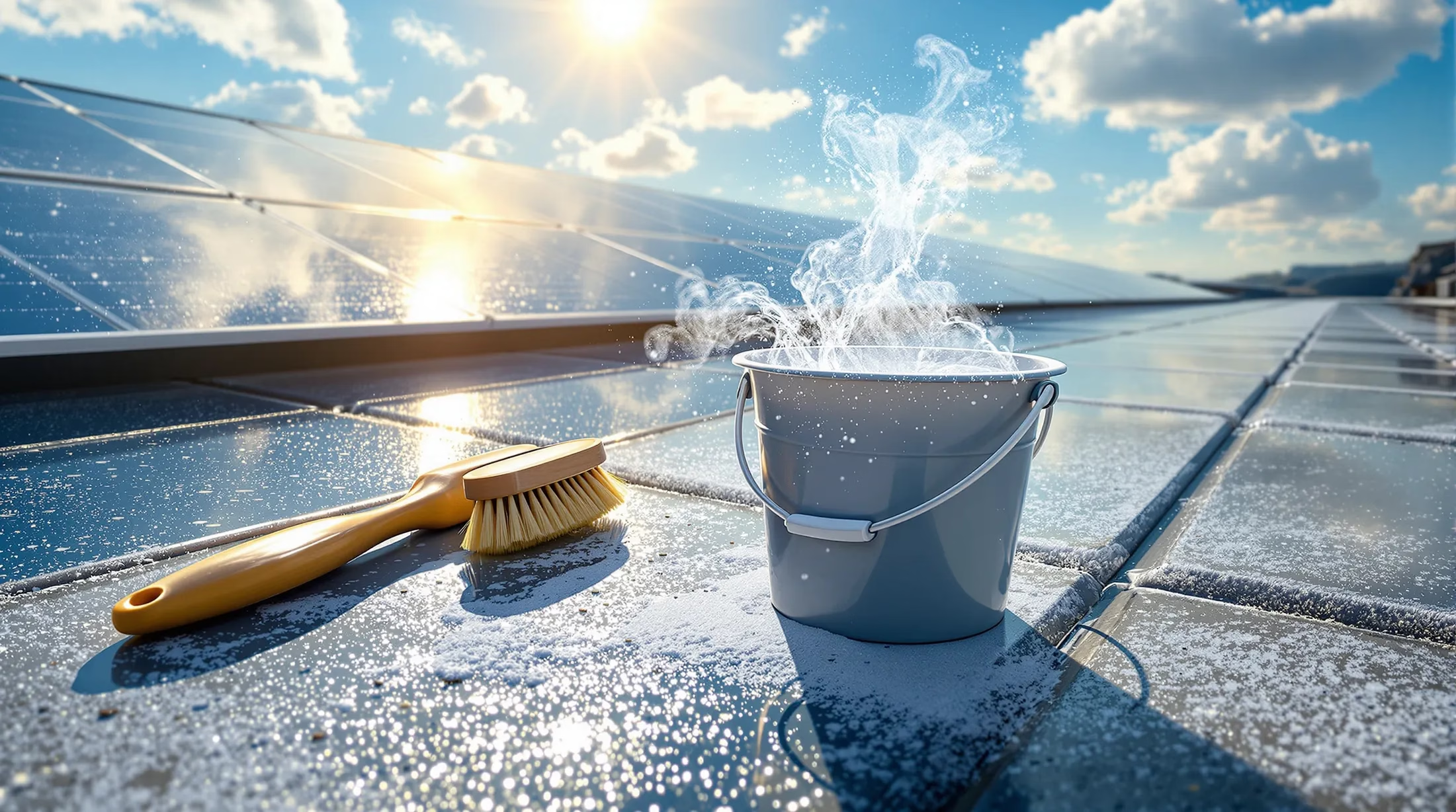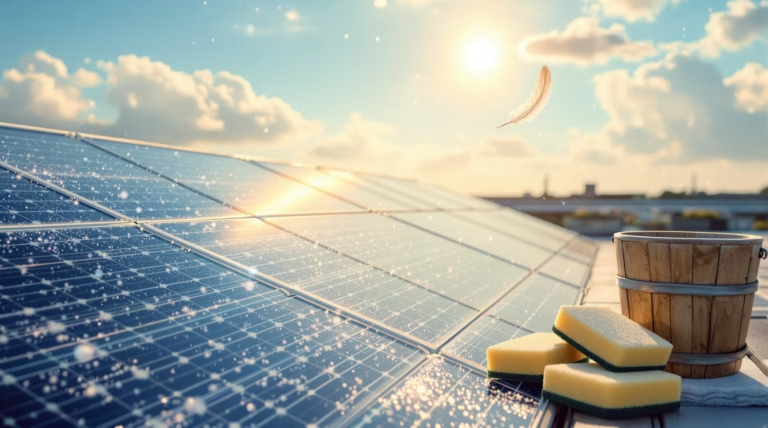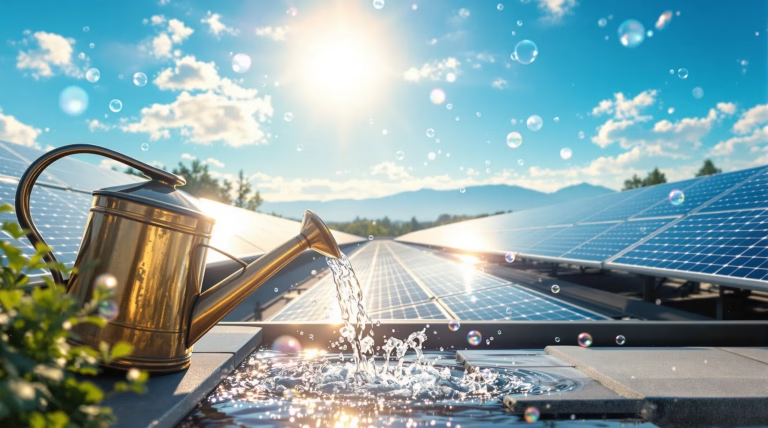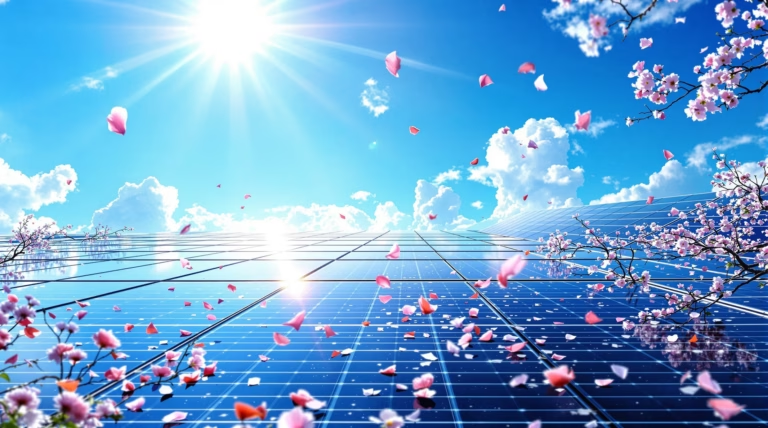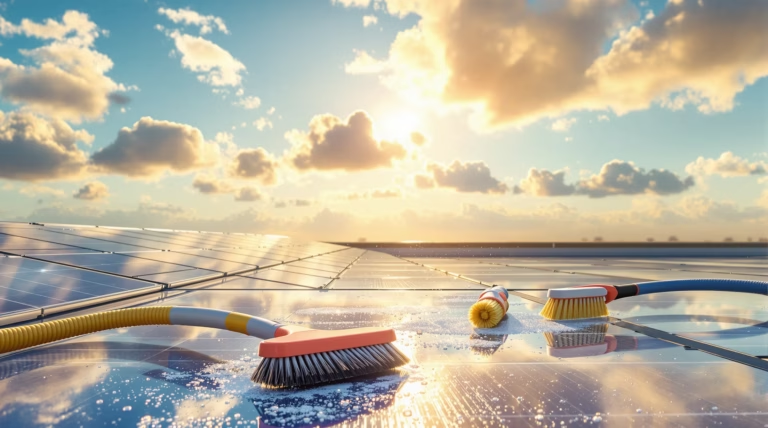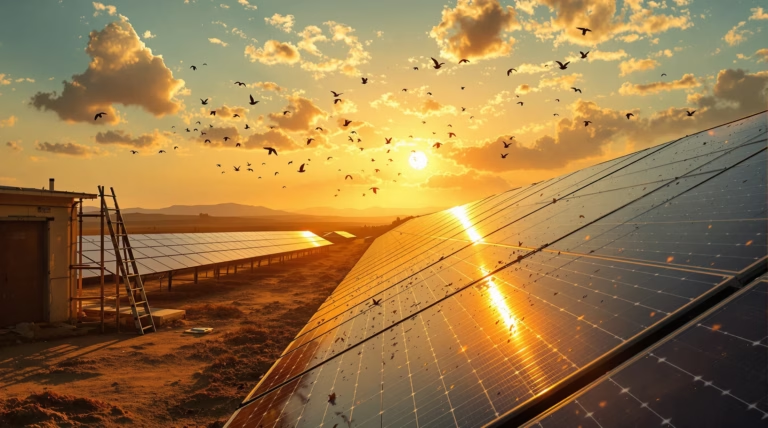Solar Panel Clean: Essential Tips and Techniques for Optimal Performance
Investing in solar panels is a significant step towards sustainable energy, but their performance relies heavily on proper maintenance. Let’s explore how to keep your solar panels operating at peak efficiency and protect your investment through effective cleaning practices.
Why Solar Panel Clean is Crucial for Efficiency
Dirty solar panels can experience up to 25% decrease in energy production, directly impacting your return on investment. When dust, pollen, bird droppings, leaves, and other debris accumulate on the surface, they create a barrier that blocks sunlight from reaching the photovoltaic cells.
- Unclean panels can lose 15-25% efficiency
- Reduced energy output leads to higher utility bills
- Regular cleaning extends installation lifespan
- Maintains environmental benefits of solar investment
- Ensures optimal system performance
Impact of Dirt and Debris on Solar Panels
The relationship between cleanliness and solar panel efficiency is direct and measurable. Research shows varying levels of impact depending on environmental conditions:
| Condition | Efficiency Loss |
|---|---|
| Thin layer of dust | 5% |
| Uncleaned panels (145 days) | 7.4% |
| Heavy soiling | Up to 25% |
| Urban pollution | 15-20% |
Benefits of Regular Solar Panel Cleaning
Regular maintenance delivers multiple advantages that justify the investment in cleaning:
- Increases energy production by up to 50% in heavily soiled panels
- Extends panel lifespan beyond the expected 25-30 years
- Enables early detection of potential issues
- Prevents microscopic surface scratching
- Protects protective coatings from degradation
Essential Tools and Materials for Solar Panel Cleaning
Proper maintenance requires specific tools designed for delicate surfaces. Always consult manufacturer guidelines before beginning any cleaning routine to maintain warranty validity.
Recommended Cleaning Equipment
- Soft-bristle brush with extendable handle (up to 20 feet)
- Garden hose with spray nozzle
- Professional-grade squeegee
- Lint-free microfiber cloths
- Telescopic poles for safe access
Choosing the Right Cleaning Solutions
Select gentle cleaning agents that won’t damage panel surfaces:
- Deionized water (preferred option)
- Natural solution: ¼ cup vinegar + 2 cups deionized water
- Biodegradable, non-abrasive cleaners specifically for solar panels
DIY Solar Panel Cleaning Techniques
For optimal results, clean panels during early morning or evening when they’re cool. This prevents thermal stress and ensures effective cleaning without risking damage to the system or personal injury.
Step-by-Step Guide to Cleaning Your Solar Panels
- Turn off the entire system according to manufacturer’s instructions to eliminate electrical hazards
- Prepare cleaning solution – mix lukewarm water with mild, non-abrasive soap
- Position yourself safely on the ground with an extended soft-bristle brush on a telescopic pole
- Gently scrub each panel’s surface with light pressure
- Rinse thoroughly using normal water pressure from a garden hose
- Perform final rinse with deionized or distilled water to prevent mineral spotting
- Allow panels to dry completely before reactivating the system
Safety Precautions for DIY Cleaning
- Stay on the ground whenever possible – use long-handled equipment for rooftop installations
- Turn off the solar panel system before cleaning to prevent electrical shock
- Avoid cleaning during adverse weather conditions (high winds, rain, lightning risk)
- Clean during early morning or evening hours when panels are cool
- Consider professional services if panels are difficult to access safely
When to Hire Professional Solar Panel Cleaning Services
Professional cleaning becomes essential for rooftop installations where safety concerns are paramount. Experts come equipped with proper safety harnesses, non-slip footwear, and extensive height-work training that most homeowners don’t possess.
| Environmental Factor | Professional Cleaning Recommendation |
|---|---|
| Heavy urban pollution | Regular professional cleaning |
| Coastal areas (salt spray) | Quarterly maintenance |
| Near deciduous trees | Seasonal cleaning |
| Post-severe weather | Immediate inspection and cleaning |
Advantages of Professional Cleaning
- Enhanced safety with proper insurance coverage and equipment
- Industrial-grade cleaning tools and purified water systems
- Expert identification of potential issues (micro-cracks, loose connections)
- Thorough inspection for pest infestations under panels
- Professional assessment of system performance
How to Choose a Reliable Solar Panel Cleaning Service
- Verify insurance coverage (liability and workers’ compensation)
- Review cleaning methodologies and equipment used
- Check references and online reviews from past clients
- Compare comprehensive quotes from multiple providers
- Confirm cleaning schedule aligns with manufacturer recommendations
- Evaluate experience with similar solar installations
Maintaining Optimal Solar Panel Performance
Regular maintenance is crucial for maximizing your solar investment’s efficiency. Dirty panels can experience a 15-25% reduction in energy production, directly affecting your electricity generation and financial returns. A well-maintained system can maintain peak efficiency for decades with proper care.
Effective maintenance extends beyond cleaning to include regular inspections and performance monitoring. Establishing a routine maintenance schedule based on local environmental conditions ensures consistent energy production throughout the year, whether through DIY methods or professional services.
Regular Maintenance Tips
- Establish a seasonal inspection schedule to identify potential issues early
- Check for structural issues like cracks, loose connections, and debris buildup
- Examine panel frames and mounting hardware for corrosion signs
- Maintain proper vegetation control around ground-mounted systems
- Schedule professional cleaning services 1-2 times annually for hard-to-reach installations
- Monitor system output through inverter display or monitoring app
- Follow manufacturer maintenance guidelines to preserve warranty coverage
Between professional maintenance visits, watch for sudden drops in production, which often indicate cleaning is needed. Always prioritize safety during maintenance activities – if uncertain about any aspect of panel care, consult qualified professionals who understand both electrical and physical components of your specific system.
Monitoring Solar Panel Efficiency
| Monitoring Aspect | Action Required |
|---|---|
| Real-time production | Track baseline efficiency metrics through system monitoring |
| Performance comparison | Compare current output against historical data |
| Energy bills | Review monthly alongside solar production data |
| Visual assessment | Use remote cameras to check dirt accumulation |
| Cleaning effectiveness | Document output increases after maintenance |
Focus on consistent patterns rather than daily fluctuations, as weather conditions naturally affect short-term production. Panels in dusty regions, near construction sites, or beneath trees typically require more frequent cleaning than those in areas with regular rainfall and minimal environmental contaminants. Establish optimal cleaning frequencies based on your specific location and environmental factors through regular monitoring and documentation.

